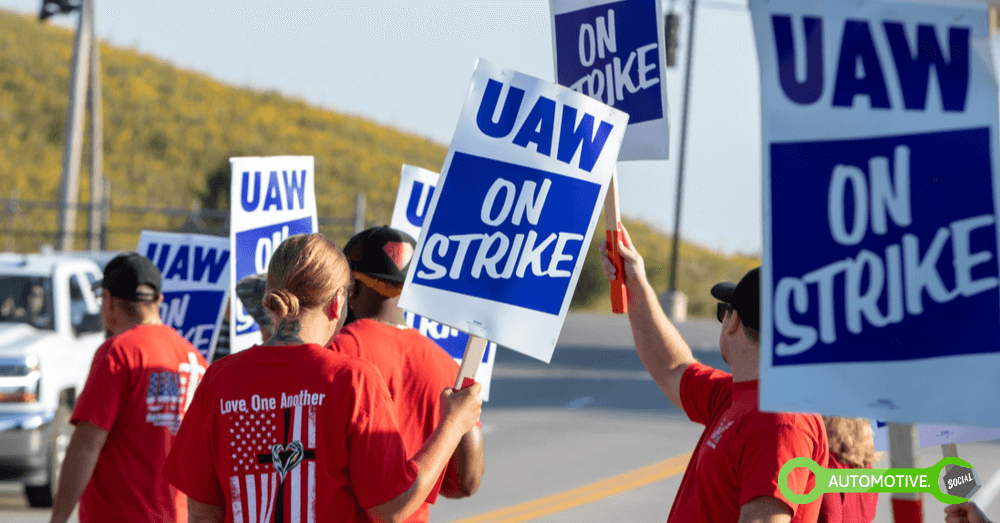Recently, Joe Biden appeared as the first president to walk a picket line with the United Auto Workers. Biden told the strikers that they deserved a significant raise and other benefits. However, reaction from car dealers and others is mixed as a raise for the UAW could compromise electric vehicle goals across the board.
Talks Break Down Between UAW and the Big Three
It’s no secret that EV ambitions are taking over the auto industry and such goals were a core part of Biden’s campaign promises. Car dealers across the country are adjusting to the idea of an electrified future. However, a strike from the UAW began in mid-September when talks broke down with the Big Three automakers (Ford, General Motors, and Stellantis).
The UAW is demanding a 36% raise in wages over four years, a 32-hour work week, and various benefits that it lost during the 2008 recession. The union is also asking for protection during the transition to electric vehicles, which happens to be a major priority for Biden. In 2023, the EPA unveiled new standards that would require 67% of all new vehicles sold to be electric by 2032.
UAW Supports the EV Transition
Despite the strike and the demands by the UAW, the union has previously said that it supports and is prepared for the transition to electric vehicles. However, the UAW wants to make sure that auto workers will have a place in the new economy around electric vehicles. Related to that, the UAW’s demands include the right to strike over plants that close down and eliminate jobs.
The fact is that auto workers have every right to be worried. Traditional vehicles have around 2,000 components in their powertrains. Roughly 590,000 U.S. employees work in the manufacturing of motor vehicle parts, and about a quarter of that number make the parts for internal combustion powertrains.
The problem is that EV models have only a small fraction of those components. For example, Tesla says that its drivetrain includes only 17 moving parts. EV models require far fewer parts and fewer man-hours to build.
Auto Industry Jobs On the Chopping Block
Even if car dealers won’t be affected that much, there are many auto industry jobs that are likely to fade away if the EV transition happens. An estimate from the America First Policy Institute says that up to 117,000 jobs could be lost if Biden’s mandate continues.
However, the demands of the UAW might not be feasible, considering how the industry is going. The main reason is that companies are already losing money due to the transition. Ford expects to lose as much as $4.5 billion. GM has said it won’t make a profit on EV models until 2025.
Ford is saying right now that the demands from the UAW are simply not feasible in the current climate. If the automakers were to accept these demands, the cost would be passed onto the consumer to the tune of roughly $5,000 per EV model sold at car dealers.
The looming problem at this juncture is that the EV transition appears to be incompatible with the demands of the UAW. A choice will have to be made.
This post may contain affiliate links. Meaning a commission is given should you decide to make a purchase through these links, at no cost to you. All products shown are researched and tested to give an accurate review for you.




